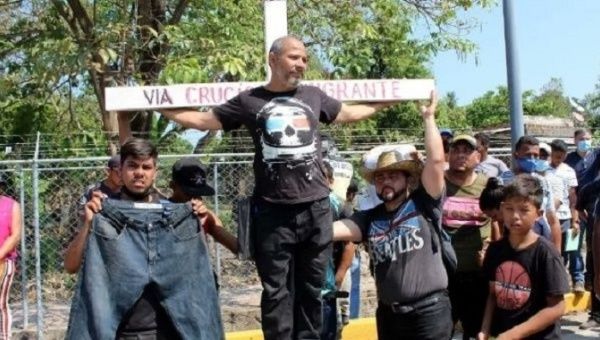
Given the proximity to the Catholic Holy Week and the estimated travel time on foot or by improvised means, organizers of the new caravan had called this new attempt "Viacrucis migrante" (Migrant Stations of the Cross). | Photo: Photo: EFE
Published 3 April 2022
The new caravan is called "Viacrucis migrante", in commemoration of the Catholic Holy Week.
A new caravan of 600 migrants from Central America and other countries of the region left Tapachula, Mexico on Saturday, with the purpose of reaching the United States (U.S.), one of the many that during the current year have started on their way to the U.S. southern border
News Coverage Of Venezuelan Migration Crisis Advocates Invasion
Given the proximity of the Catholic Holy Week and the estimated travel time of the caravan on foot or by improvised means, its organizers called this new journey the "Migrant Stations of the Cross".
On the way to Mexico's northern border they encountered a National Guard checkpoint, which provoked an altercation that resulted in a dozen people being detained and injured on both sides, according to local media reports.
The anti-immigrant operation, headed by the delegate of the National Migration Institute (INM) in Chiapas, Paola López Rodas, caused the contingent of foreigners to be divided. However, as a result of the isolated confrontations, 92 people were reported detained and 27 injured, according to the Casa de Dignificación Humana, the rest of the caravan managed to reach the community of Álvaro Obregón, 18 kilometers from Tapachula.
From that community they will resume their journey next Monday, because they wish to rest due to the aggression caused by agents of the National Guard and hope to regroup.
In recent years, the number of migrants who, organized in caravans, cross the entire Mexican territory towards the United States has increased. In the next few weeks, Washington should repeal Title 42, which restricted entry into the United States due to the COVID-19 pandemic, a measure that is expected to increase migration.
No comments:
Post a Comment